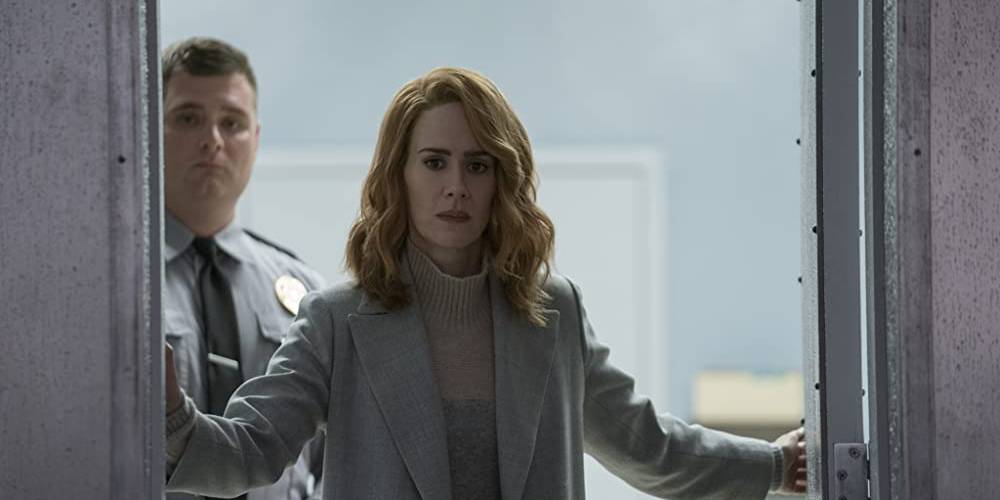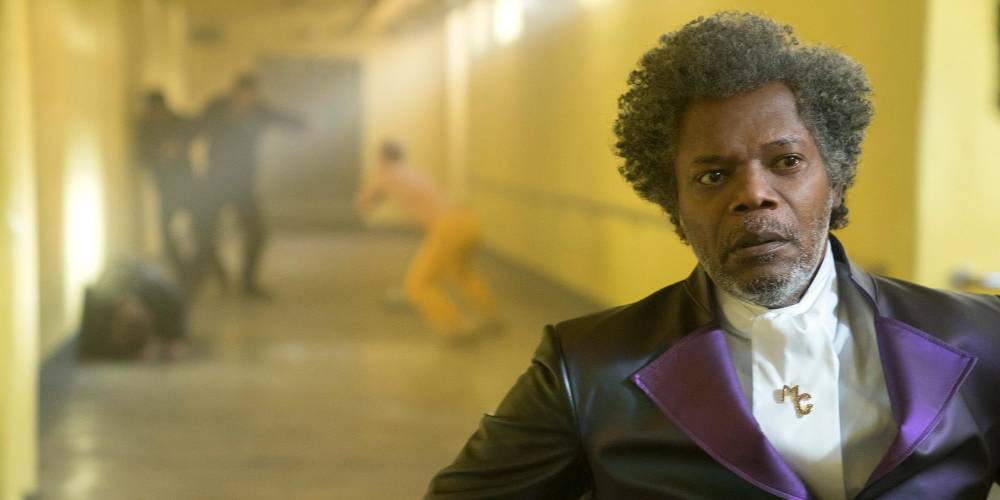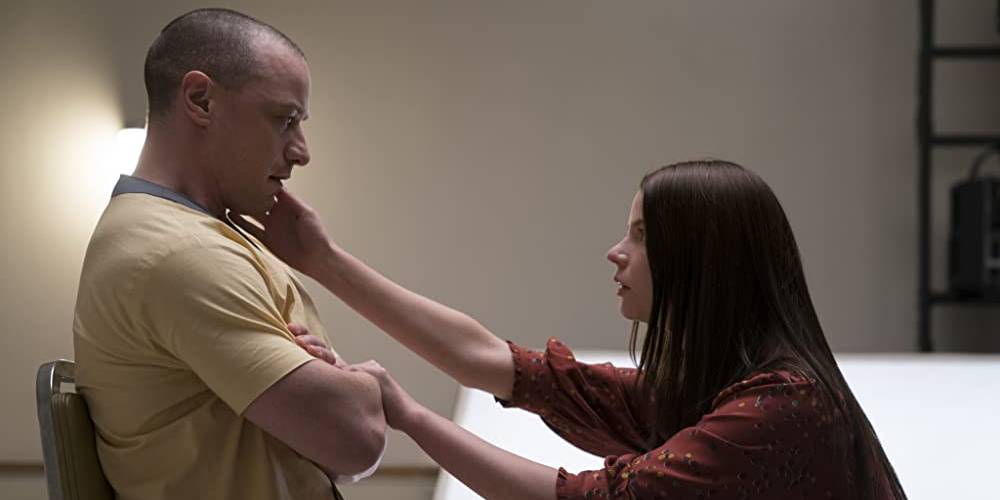M. Night Shyamalan closes the Eastrail 117 trilogy with a deliberate anticlimax and deep empathy in place of spectacle, and the results are striking.
In 2019, the Walt Disney Company released Avengers: Endgame, the culmination of an 11-year-long project of crossovers, callbacks, foreshadowing, and franchising. The result was, for a time, the single highest-grossing film in cinematic history. This success seemed to mark the undisputed coronation of the superhero movie as the defining film genre of the modern era. But just a few months earlier, to quieter but not unsuccessful fanfare, another superhero film was released, one whose foundations were laid long before the Marvel Cinematic Universe’s were, a film that was, in its way, an epic farewell to a cinematic universe. M. Night Shyamalan’s Glass is the third and final film of his “Eastrail 177 Trilogy,” a trilogy of supernatural thrillers that rely not on pyrotechnics and action but on sincere, intimate moments of character.
Linking up Kevin Wendell Crumb’s monstrous alter “The Beast” and his alter allies “The Horde” (James McAvoy) from Split with Bruce Willis’ physically invulnerable David “Overseer” Dunn and Samuel L. Jackson’s criminal mastermind Elijah “Mr. Glass” Price from Unbreakable, Shyamalan’s film at first appears a grand crossover of its own, one that promises to deliver top-level thrills and entertainment – right up until it pointedly doesn’t. With Glass, Shyamalan crafts a thoughtful, mature alternative to the overwhelming, monolithic superhero film culture of the late 2010s, one that challenges the audience’s expectations for heroism and narrative. After an early section of the film which seems to promise a violent showdown between the Overseer and The Beast – with the lives of multiple damsels in distress, cheerleaders no less, hanging in the balance – Shyamalan drops the two characters into the same psychiatric hospital that Mr. Glass was committed to nearly twenty years earlier.

Dr. Ellie Staple (Sarah Paulson) tells the three captive men they suffer from delusions. They are not superhuman—they are mentally ill victims of unusual and unfortunate circumstances. Willis, in an affecting late-career performance, is particularly devastated by this. Watching one of the icons of Hollywood action herodom forced to doubt his abilities and strength is heartbreaking. A lesser, more formulaic movie would have Willis’s Dunn face his doubts for a time and then emerge victorious in the third act to save the day. But Glass stretches out the period of doubt and ultimately ends with the unbreakable Overseer drowning in a literal puddle of shallow water. His demise isn’t a grand sacrifice either—it’s a sad, bleak moment when all really does seem lost. And that’s just one of the multi-film arcs that Shyamalan mines here for pathos, arcs that close in tragedy.
Throughout Glass, the cast notes the opening of a new skyscraper in downtown Philadelphia, a modern marvel of commerce and ingenuity constantly teased on TV. It seems like a perfect stage for the Overseer, the Beast, and Mr. Glass to do battle or possibly become reluctant allies in what would no doubt be a magnificent display of action and special effects. But in bold defiance of Chekhov’s “rule” about how a gun seen on the mantlepiece in Act 1 must be fired in Act 2, the ensemble never makes it to that skyscraper. All three protagonists die rather undramatically on the grounds of the psych hospital—unwitnessed by the world at large. They are mourned only by the handful of people who knew them and cared for them in some special way—Prince’s mother (Charlayne Woodard), Dunn’s son Joseph (Spencer Treat Clark), and Crumb’s fellow abuse survivor/the Horde’s former captive Casey (Anya Taylor-Joy). There is no “infinity war” here, only people’s small and limited lives. Exceptional people? Certainly. But people nonetheless.

Glass functions oddly for a thriller. The pacing is hardly breakneck, and its subplots move in fits and starts. There are long scenes of characters engaging in rather direct, exposition-heavy dialogue. Some of the character beats, while well-intentioned, strain credulity—Taylor-Joy’s Casey, for instance, has gone far beyond the trauma-based empathy she developed for Crumb in the first movie to become his closest/only friend. In overall execution, though, Glass‘ earnestness, combined with Shyamalan’s impressive, classical style, is a good film. And there are moments where it becomes full-on essential. Shyamalan’s polished compositions (mostly keenly on display during the group therapy scenes), the use of bold, comic book-influenced coloring, and his ability to draw strong performances out of actors as disparate in style as Willis (old school movie star masculinity), and McAvoy (high energy Brit theatricality)—all give Glass a real sense of grounded humanism.
Glass’ world is not one where monumental figures—even those played by titanic actors like Samuel L. Jackson—stride across the earth like colossi to fight cosmic battles. Instead, it is a world of small heroism. When Jackson, McAvoy, and Willis are all killed off, the film continues for another act, following Mrs. Price, Joseph, and Casey as they move on from the trio’s death by spreading the word that, despite what Staple and the establishment may tell us, there are super people out there. And they’re all around us, riding our trains, chatting next to us on the phone, maybe even watching in the theater or from the comfort of their couch.

In 2000, Shyamalan’s Unbreakable told the story of a man caught in a train derailment who survived where most people would die. Despite David Dunn insisting that he’s just an ordinary man, his extraordinary powers become apparent to him and his family, and he ultimately accepts them—a small victory and a real victory. Nineteen years and an entire generation of superhero blockbusters later, Glass finishes that story by imploring viewers to find the beautiful and the extraordinary for themselves. Rather than setting up a future installment or launching a spin-off, Shyamalan seems to say at the end of Glass: “this is the end of the story I’m telling, but you can write one yourself.” In this, he’s doing something refreshingly humane and liberating in one of the least humane and more narratively oppressive storytelling genres. And he provides what may be the rarest thing of all in that genre, at least as it exists presently: an ending – something that makes a statement. Because the characters of Glass can die, and because they can truly say goodbye to their audience without setting up another ten or twelve movies down the line, they can offer an unusual maturity and wisdom—very much of a piece with Shyamalan’s contemporary work. In our current cinematic landscape, that approach is very welcome, and the occasional awkwardness of his style—stilted dialogue, jarring tonal shifts—comes across not as a weakness but simply as a sign of the storyteller’s humanity.